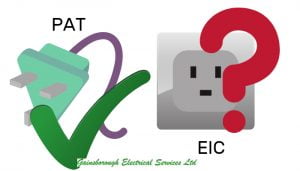Landlords have a responsibility to ensure that their properties are safe and proper places for people to live.
Many fires occur as a result of an electrical fault. And you may have PAT tested any and all electrical devices in your property.
However, did you know that you are also responsible for the cables and wires concealed behind the walls. These are electrical installations and require an EICR or Electrical Installation Condition Report.
Landlords and EICRs
Under The Landlord and Tenant Act 1985 landlords or letting agents are responsible for the safety of electrical appliances and installations. And an EICR should be carried out every five years for properties with tenants.
If you do not carry out regular checks, you may fail to comply with the Electrical Equipment (Safety) Regulations 1994 or the Consumer Protection Act 1987. This could mean fines or even a prison sentence.
The good news it is easy to comply with regulations.
Ask your local NICEIC accredited electrician to provide you with an in depth Electrical Installation Condition Report (EICR) for your properties.
Reveal any overloading of your electrical circuits or equipment.
Find any potential electric shock risks and fire hazards.
Identify any defective electrical work.
Highlight any missing earthing or bonding.
Test wiring and fixed electrical equipment to check that they are safe.
Provide a schedule of circuits
It will list any remedial work required AND any de-energising of an obviously defective part of the installation, until the fault can be fixed. So, something like a faulty shower unit will be decommissioned until it can be used safely.
Do you own a property in England and Wales which is three storeys or more and occupied by five or more people who are not related? Well, that is an HMO and, since 2006 you have been required to licence these types of building with the local authority.




